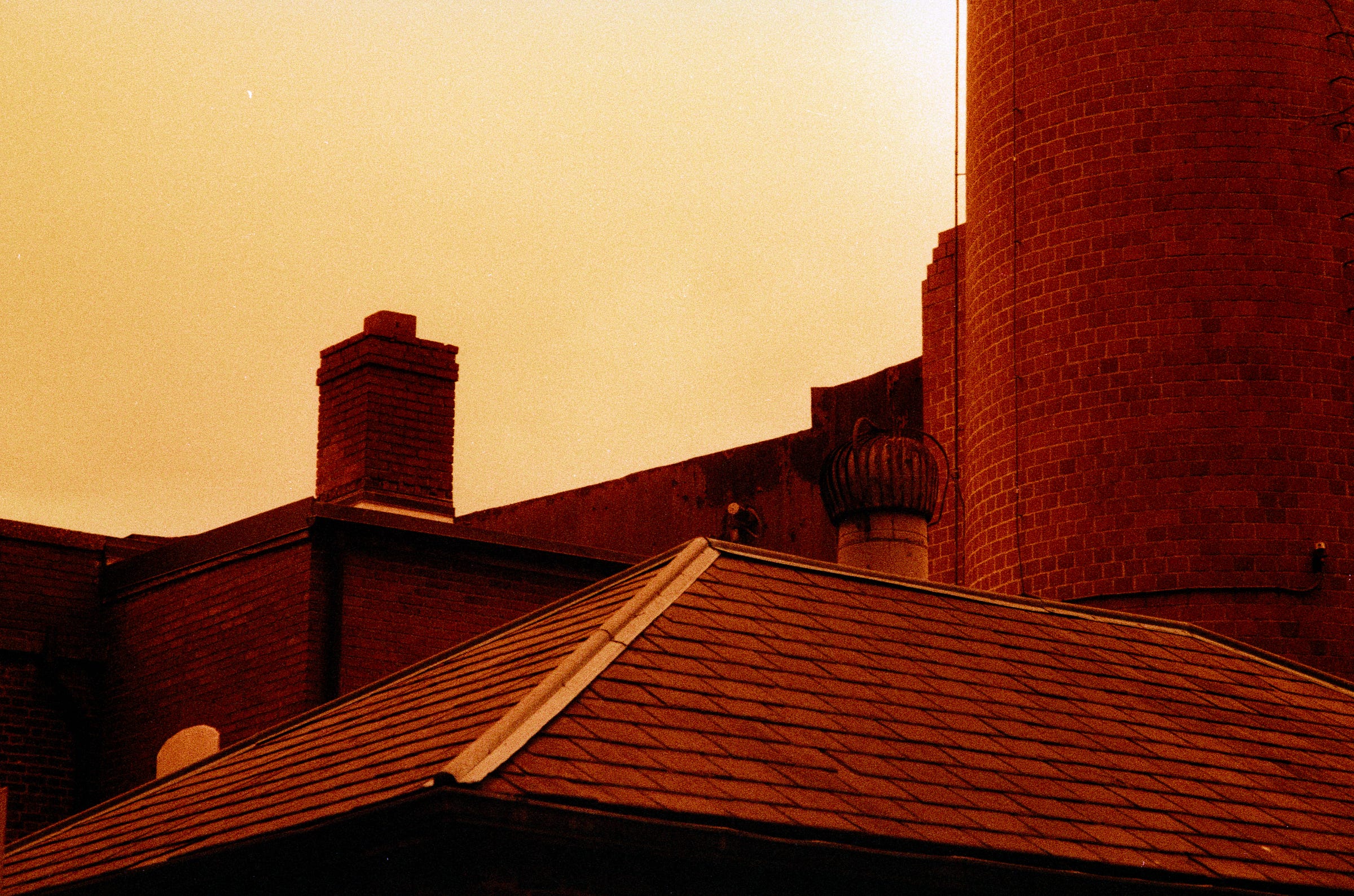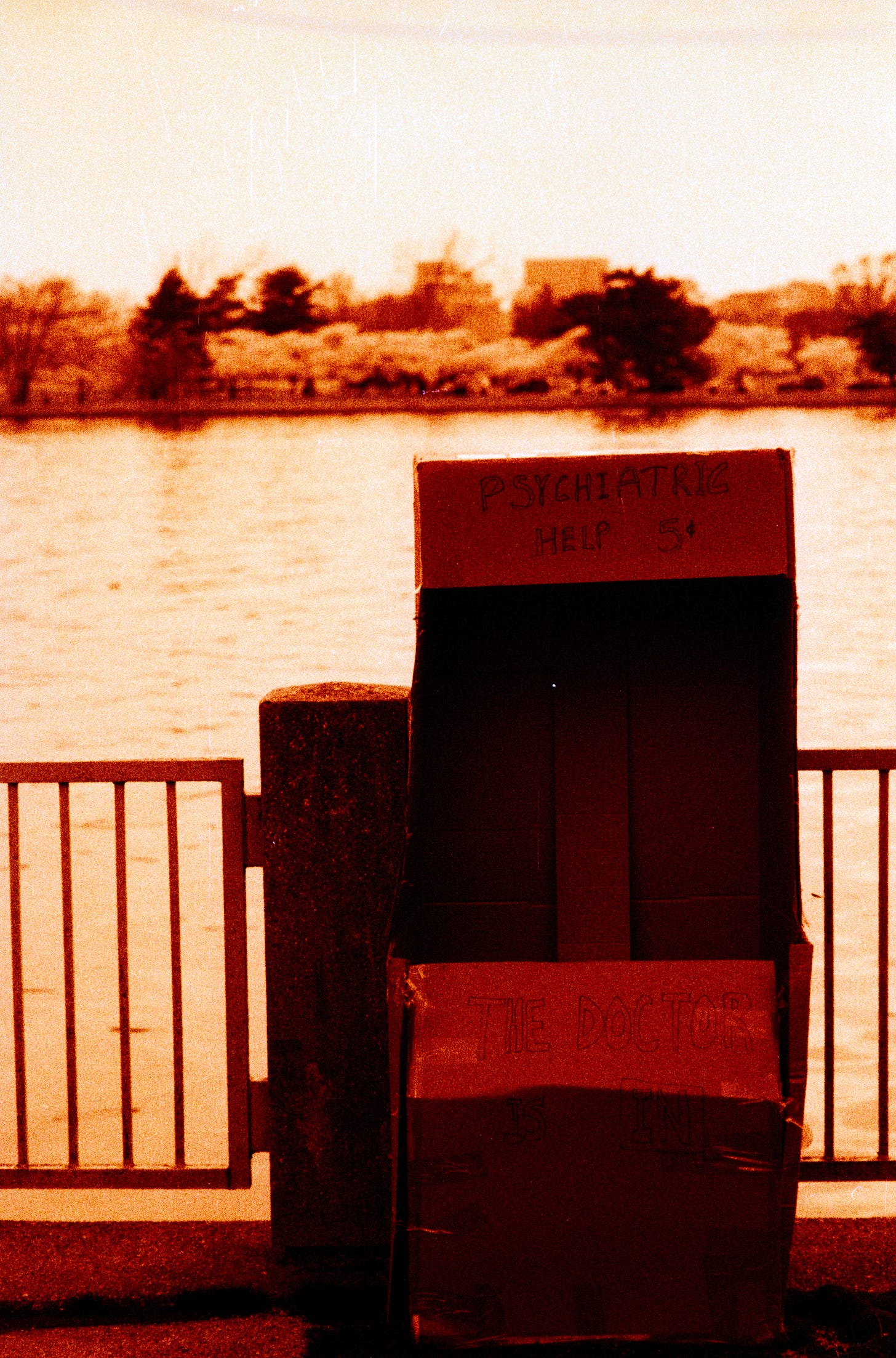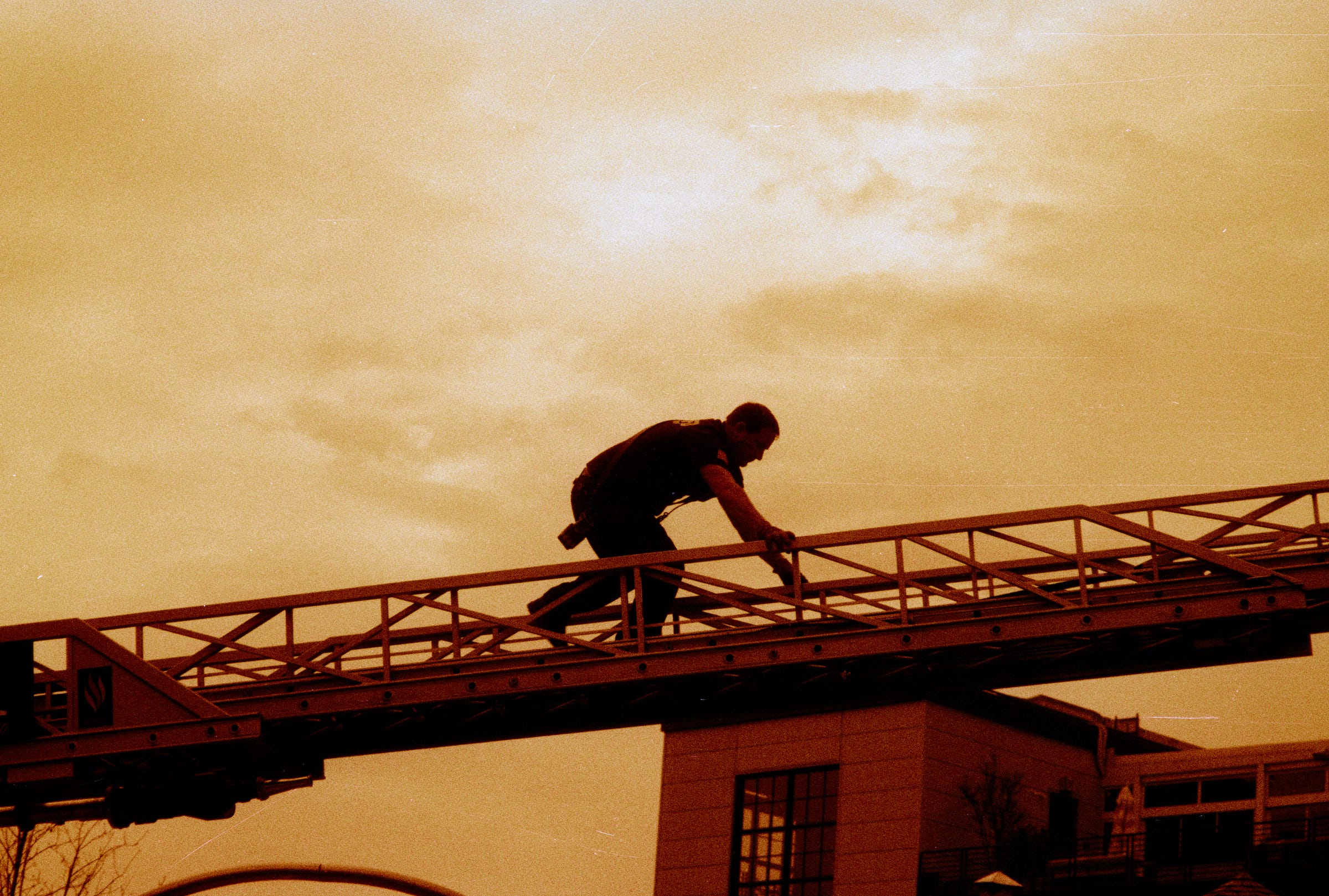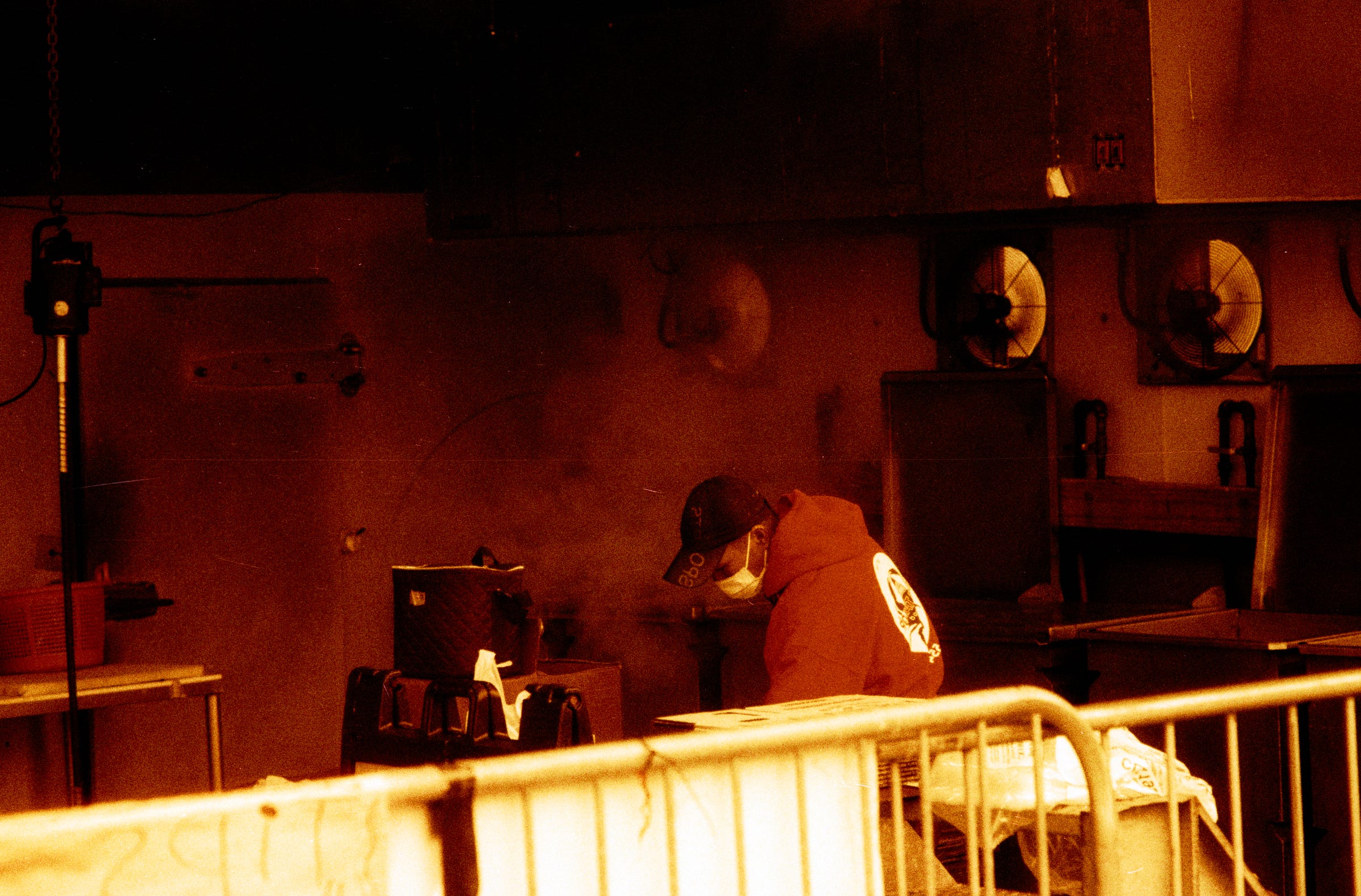A few weeks ago, I read Annie Ernaux’s 2022 Nobel lecture, I Will Write to Avenge My People. Ernaux’s short piece discusses her relationship to writing, her class, and her gender, among other things. She spends some time contemplating her use of the first-person “I” and the sociohistorical contexts of that decision. I found the piece moving, and it’s worth a read, you can find it in full on Le Monde’s website, in the same translation as that in the lovely Fitzcarraldo edition (I have been calling these Fitzcarlando for weeks and no one has corrected me).
I am inspired by, and sometimes uncomfortable in how I relate to, Ernaux’s work. Of course, this is the value that Ernaux discusses in the Nobel lecture: that writing becomes transpersonal, shatters loneliness, and deciphers lived situations. Which is to say, we are but the most recent generation of countless that have come before, and the pangs of life share a common tongue. The various personal configurations of our lives will be different, but the features of them have been experienced and sometimes documented (occasionally with great beauty).
I read the lecture in a cafe in Washington D.C., on a Saturday morning around 8am, and could not help but look around the cafe and wonder who “my” people are. I don’t think of them as the lululemon-wearing yoga-goers or the dogwalkers that are often in that cafe at that time, though the nature of our lives has resulted in us sharing those spaces for those few hours. I scribbled on a napkin a rough list, more questioning than declaring:
Gay people?
Rural people?
Social workers? Complicated.
People experiencing homelessness? Really complicated.
My generation?
My friends.
People I’ve loved. Complicated.
The first few that came to mind are those that I most feel as a part of my identity, some more positively than others.
I remember being in the room when the gay marriage bill was signed in Illinois. That was at the UIC Forum while I was a student there, and I stood at the very back of the room, still closeted, and thought, “I’m too late. The fight’s over.” It’s been something like 12 years since then and, unfortunately, the fight is not over. In fact, I would go as far to say that I think about this part of myself and my responsibility to my people more than I ever have.
A major part of my work, until the change in Administration, centered on equity, particularly equity in data (think Sexual Orientation and Gender Identity, or SOGI, data). It was my job to ask questions like, “should the Federal government have this sort of information” and to weigh the pros and cons of that, as it relates to my particular work. That was not easy a year ago, but today it has taken an outright adversarial tone in my body. In a meeting recently, a coworker lamented people, “always forgetting about veterans” while we were looking at a chart in which veteran homelessness has plummeted year over year. I rather snapped, “you can’t even MAKE this chart about my people! And if you could, it wouldn’t look like this!”
I remember, back in 2013, trying to join my University’s gay club and being told, more or less, that I wasn’t gay enough for it. I was baffled, incensed, but also almost suicidally depressed at the time, so I had no response but to walk away and never think about going again. I wish I could find that person and ask them what was happening in their life that they would burn access to a community in that way, to someone in the position I was in. I wish I could go back and tell myself to try again, someway or with someone else, and that the weeks it took me to work up the courage to go to that room would not have been in vain. In this, I find the birth of my protective feeling of my people, even and especially among ourselves. I have felt very raw and strange using the word Queer, as to me it has such baggage as an insult, but over the last year I have felt strong kinship with it, especially as the politics of initialisms increasingly unsettle me. I like the big-tentness of Queer; I think of these as my people.
I cannot shed the conditions in which I grew: poor, rural. A hick from Bumfuck, Nowhere. Or, as we called it, BFE (bumfuck egypt – which I do not think is because I grew up in what was called the “Little Egypt” region of Illinois). I am often stunned by the outrageous course of life in that I grew up between a junkyard and a cornfield and now ride a bike past the White House and Washington Monument to work. It is inconceivable that this happened.
I don’t enjoy visiting home. I feel like an alien when I’m there, someone who has lost claim. I drive down the main drag and I see the abandoned newspaper office and the little greasy-spoon restaurant that was my grandma’s kitchen. I would go in through the backdoor sometimes and say hi to her, sometimes I could cook my own chicken strips and fries in the fryers. Cats all around the outside, because she set out cans of food for them. The old men piled around the table out front talking politics and weather and farming, which many of them gave up years ago in their advanced age.
Aside: A few years back, I traveled to San Francisco for a conference. One day, I was wondering around the Mission and Japantown, and I being who I am stopped into a McDonald’s as I was in a sort of deadzone between these neighborhoods (this was on Golden Gate Avenue), and mostly I just needed a bathroom badly. I sat there eating my nuggets and watched the room. It was around the time school lets out, and kids were coming in and ordering and acting like kids. In the middle of the room, a round table with old Asian men, all drinking coffee and talking in a different language. I watched them with a strange nostalgia, because I realized I knew those men. It didn’t matter that I didn’t speak their language, I knew exactly what they would be discussing. Old Men having coffee and talking to each other, the same in San Francisco as in Little Egypt, Illinois. It is a great frustration to me that the old men where I grew up do not recognize the commonalities between the village and the city.
When I visited home over Christmas this past year, I sat in my grandma’s living room and a family member came in to visit. It inevitably turned to politics and I gave up being polite about blatant nonsense years ago. So when this person began talking about this Administration clearing out the workers, I asked if he realized they’re talking about me. It didn’t phase him. It is not unlike this same sort of person talking about Black folks or Gay folks, when they know a person, they can create an exception for that person, but the rest of the Category is still suspicious.
I wonder if people where I grew up realize just how much I, and so many countless others, worry about how to serve rural America. “How will this policy work in rural places” is probably the question that I think about the most. Do they understand how many Federal employees came from, and carry with them still, the reality of living in a place where you cannot walk down the street without everyone and their dog knowing about it? I think about them a lot. They are my people, even if they would not like to have me.
My profession, social work, is another distinct identity. I list it primarily because I feel a responsibility to push for social workers in government and outside of the therapist’s office in general. That when people think of social workers, they think of child protection and therapy is, to me, a great failure of our profession. We think in systems, we think in equity, and in doing the best we can with the realities of the world. I often talk to undergraduate and graduate students interested in “macro” social work, i.e., work that is not clinical, the kind of work that I do. Half the time I’m the first person they’ve ever spoken to about it, and it’s my job to tell them that there is work to be done at the higher level. That if we want to effect change that will *prevent* the sorts of personal problems we’d see as clinicians, we have to do it at the highest level we can get to. For that, that has meant becoming a part of arguably the best team working on my subject-matter area in the Federal government. It is a bizarre thing to have achieved a dream job, but that is what I feel that I’ve done.
I have dedicated my entire adult life to ending homelessness. I hope I can continue to say that as long as homelessness exists on this planet. I have forced myself to contain these thoughts to my working hours, because I worry that if I let myself fall into them, I will cease to be a functioning person. I have done that before, and my profession is subject to this danger. There was a time in my life, when I ran from myself, that I valued this. I wanted to, in the words of Malcolm Tucker, have a job that “eats your insides alive and stares out of your eyes and tells you what to do.” I wanted that because I find work so much easier than the rest of being a person, so much less fearful and vulnerable. But that’s all besides the point. When I walk by someone sleeping on the street, I feel… I don’t know. Everything I want to write sounds arrogant and stupid.
Here’s what I can say: I feel that we can do better, and that I owe a debt, and that maybe through this work I can do something that matters and makes a difference. I don’t mean that to be possessive or arrogant or however of the various ways it could be seen negatively. It’s an earnest belief that this is a problem entirely fixable, and I want to be involved in the fixing. And from the days when I worked in the field, and spoke to people and worked with people—their names are still in my head. I remember them. I bring them to work with me. They are, in this way, still my people, because I feel responsible not for them, but to them.
I feel a much more tenuous connection to my generation. Possibly because I had to grow up very young, and feel more comfortable being the speaker to a room of 500 than as a partygoer in a room of 20, especially if most of those 20 are strangers. I guess the concept of “my generation” is simply a lot more amorphous. Sure, you could bracket a span of years and call it good enough, but is it? Where I grew up experienced cultural shifts like internet adoption several years past others, so I often feel a little behind. Conversely, since I was on IRC chatrooms and part of the first major wave of connected communities on phpbb3 forums and such, I was exposed to much more varied people growing up than anyone in my community would have been before the internet.
The unifying aspects seem to be the crushing burden of student loan debt, the knowledge that it will most likely forever prevent the “American Dream” of home ownership, and the likelihood that we will never be able to retire. I grew up with the latter simply by virtue of growing up poor in a rural area, where people in my family worked themselves to disintegration and death (sometimes literally) on the factory floor. Perhaps the other aspect that I feel connects me to “my” generation is a frustration with the generations that came before, particularly my parents’ generation, that seems to have stood by and been perfectly pleased to observe the fall of the republic with little comment. I recognize this is an ungraceful and frustrated take, but I cannot be but frustrated and ungrateful towards previous generations at the moment.
Then there are people. I have a good memory, sometimes too good. I wish that I didn’t have such persistent visions of things that happened and rooms I was in, but I do and that is life. I remember my friends from years gone by, those I haven’t spoken to in years that I grew up with, or those that I’ve lost even recently that I simply fell out of contact with for one reason or another. And then there is that higher level, to me, of people that I care about. There is not much that I can say, apart from I don’t forget, and that I feel.
I hesitate to think of this knowable quantity as “my” people, because it feels possessive, and sometimes jealous. These traits can be poisonous.
I remember being an undergrad in my social work program and being adopted by a few folks: Leyda, Rey, Mike. I did not understand why they would want anything to do with me, but I appreciated their friendship. I felt similarly about grad school friends: Brogan, Magda, Siri, Soomin, Sarah. When I moved to DC, it took me time to work up the courage to go to places and make friends, I felt raw to my background and how different it felt from everyone else’s. I would go to cafes and hear about travel and all of this exotic stuff, and feel very poor and like a rube. Eventually, I did work up that courage, and I made real friends. I still don’t understand why they would spend time with me, what makes me valuable in friendship, but I am grateful that they did. I wonder why I feel a distinct fear to list them as I did my others – is it because those others are largely consigned to the past, and so the sense of possession is more that of memory than anticipation? Maybe. My loyalty is no lesser for it.
I suppose these are my people. The title is a reference to the Le Carré novel “Smiley’s People.” Throughout Le Carré’s novels, Smiley works with a number of people in The Circus and outside of it. Smiley is loyal to “his people,” feels responsible for/to them, and often this is in the face of tremendous ambiguity. I like the Smiley character, a lot.
Ernaux’s lecture inspired me to reflect on my roots and the people to whom I feel loyal and those that I carry in my head and heart. I feel a strong connection to “my people” — and I hope that our reality is not such that they need be avenged. Maybe this is a generational difference, though Ernaux wrote the phrase, “I will write to avenge my people” first when she was 22-years-old. I wonder if I am an optimist for hoping that vengeance is temporally prohibited, that there is still time to prevent and mitigate, and thus intervene before vengeance is called for. It does feel slipping. Then again, I think vengeance is also a toxic thing, it is not restorative. But, god, it is a tempting fantasy.
Vengeance is, however, a thing demanded of loyalty. It may not be rational, but if you feel loyal to a thing or a person that is wounded, you feel a need to protect and avenge. But I’m saying “you” as if I know your thoughts. Let me say “I” as Ernaux would. If someone or something wounded my people, I would feel the call to avenge. I would feel incensed. Vengeance is maybe a topic I should explore in another article, because as I think about it here it has a distinctly violent aspect, and that is not a thing that I think has to be true. I don’t know.
What I know is that I have my people, even if only in memory, and I take them with me in my heart as I try to live.
Other Reading/Writing/Watching
4/4/2025 - Book review, Notes on Suicide by Simon Critchley (3/5)
4/5/2025 - Film, THE PACKAGE (N/R)
Book review, The Myth of Closure by Pauline Boss (4/5, reread from grad school)
4/6/2025 - Films: HALO 4: FORWARD UNTO DAWN, HALO LEGENDS, and HALO: THE FALL OF REACH. I had these on as background noise and wasn’t paying a lot of attention.
4/8/2025 - Film review, THE MASTER (5/5, rewatch)
4/9/2025 - Short film review, THE COLOUR OF HIS HAIR (2.5/5)
Film review, THE PRODUCERS (2/5, VHS Village Watch Party)
4/10/2025 - Film review, THIEF (5/5, rewatch with director’s commentary)
4/11/2025 - Film review, OH, CANADA (2/5)
Book review, Swimming in the Dark by Tomasz Jedrowski (4/5)
4/13/2025 - Film review, FIDDLER ON THE ROOF (4/5, VHS Village Watch Party)
4/15/2025 - Film review, TAMPOPO (2/5, VHS Village Watch Party)
About the Photographs
The photographs in this article were shot with a Nikon F4 and an 85mm Nikkor AF lens. The film is Harman’s new Red film, shot at varying ISOs, developed by The Darkroom.












